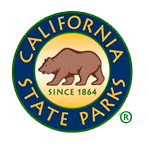Naples SMCA and Campus Point SMCA (no-take)
Like state and national parks protect wildlife and habitats on land, marine protected areas (MPAs) conserve and restore wildlife and habitats in our ocean. Under the California Marine Life Protection Act (MLPA) passed in 1999, California began a historic effort to establish a science-based, statewide network of MPAs through a collaborative effort that includes the California Department of Fish and Wildlife and California State Parks. California is taking a regional approach to the design and implementation of MPAs, and has divided the state into five regions: the north coast, south coast, north central coast, central coast and San Francisco Bay.
MPAs contribute to healthier, more resilient ocean ecosystems that can better withstand a wide range of impacts such as pollution and climate change. By protecting entire ecosystems rather than focusing on a single species, MPAs are powerful tools for conserving and restoring ocean biodiversity, and protecting cultural resources, while allowing certain activities such as marine recreation and research. There is a global body of scientific evidence about the effectiveness of marine protected areas and reserves to restore marine ecosystems (http://www.piscoweb.org).
In the waters adjacent to El Capitán State Beach, there is one MPA, Naples State Marine Conservation Area (SMCA).
- Naples State Marine Conservation Area (SMCA)
- This area is bounded by the mean high tide line and straight lines connecting the following points in the order listed:
34° 26.51' N. lat. 119° 58.00' W. long.;
34° 25.00' N. lat. 119° 58.00' W. long.;
34° 25.00' N. lat. 119° 56.00' W. long.; and
34° 26.13' N. lat. 119° 56.00' W. long. - While small in size, Naples Reef is an exceptionally rich, productive habitat with anemone covered underwater walls rising overhead and a spectacular kelp forest teeming with fish and wildlife.
- Naples Reef is a popular SCUBA diving site for more experienced divers. It features arches, pinnacles and ledges filled with colorful anemones, nudibranchs and cowries, along with reef fish like kelp bass, sheephead and even the occasional white sea bass or yellowtail. Marine mammals including sea lions and harbor seals also frequent the area.
- Permitted/Prohibited Uses: Take of all living marine resources is prohibited EXCEPT the recreational take of pelagic finfish including Pacific bonito and white seabass by spearfishing and the commercial take of giant kelp (Macrocystis pyrifera) by hand harvest or by mechanical harvest only under the following condition:
- Duplicate landing records must be kept on board he harvest vessel in accordance with the requirements of Section 165.
- This area is bounded by the mean high tide line and straight lines connecting the following points in the order listed:
In waters near El Capitán State Beach, there is one additional MPA, Campus Point State Marine Conservation Area (SMCA) no-take.
- Campus Point State Marine Conservation Area (SMCA) no-take
- This area is bounded by the mean high tide line and straight lines connecting the following points in the order listed except where noted:
34° 25.20' N. lat. 119° 53.60' W. long.;
34° 21.48' N. lat. 119° 53.60' W. long.;
thence eastward along the three nautical mile offshore boundary to
34° 21.21' N. lat. 119° 50.65' W. long.; and
34° 24.30' N. lat. 119° 50.65' W. long. - Permitted/Prohibited Uses: Take of all living marine resources is prohibited.
- This area is bounded by the mean high tide line and straight lines connecting the following points in the order listed except where noted:
This information does not replace the official regulatory language found in California Code of Regulations, Title 14, Section 632, including commercial allowances and restrictions.
- A fishing license is required for any fishing.
- All existing take regulations still apply in addition to the ones listed above.
- Unless otherwise stated, all non-consumptive recreational activities are allowed.
Additional Resources:
For additional information on MPAs please visit the California Department of Fish and Wildlife’s website: https://www.wildlife.ca.gov/MPAs
For resources related to MPAs, please visit the Marine Protected Areas Education and Outreach Initiative’s website: http://www.californiampas.org/